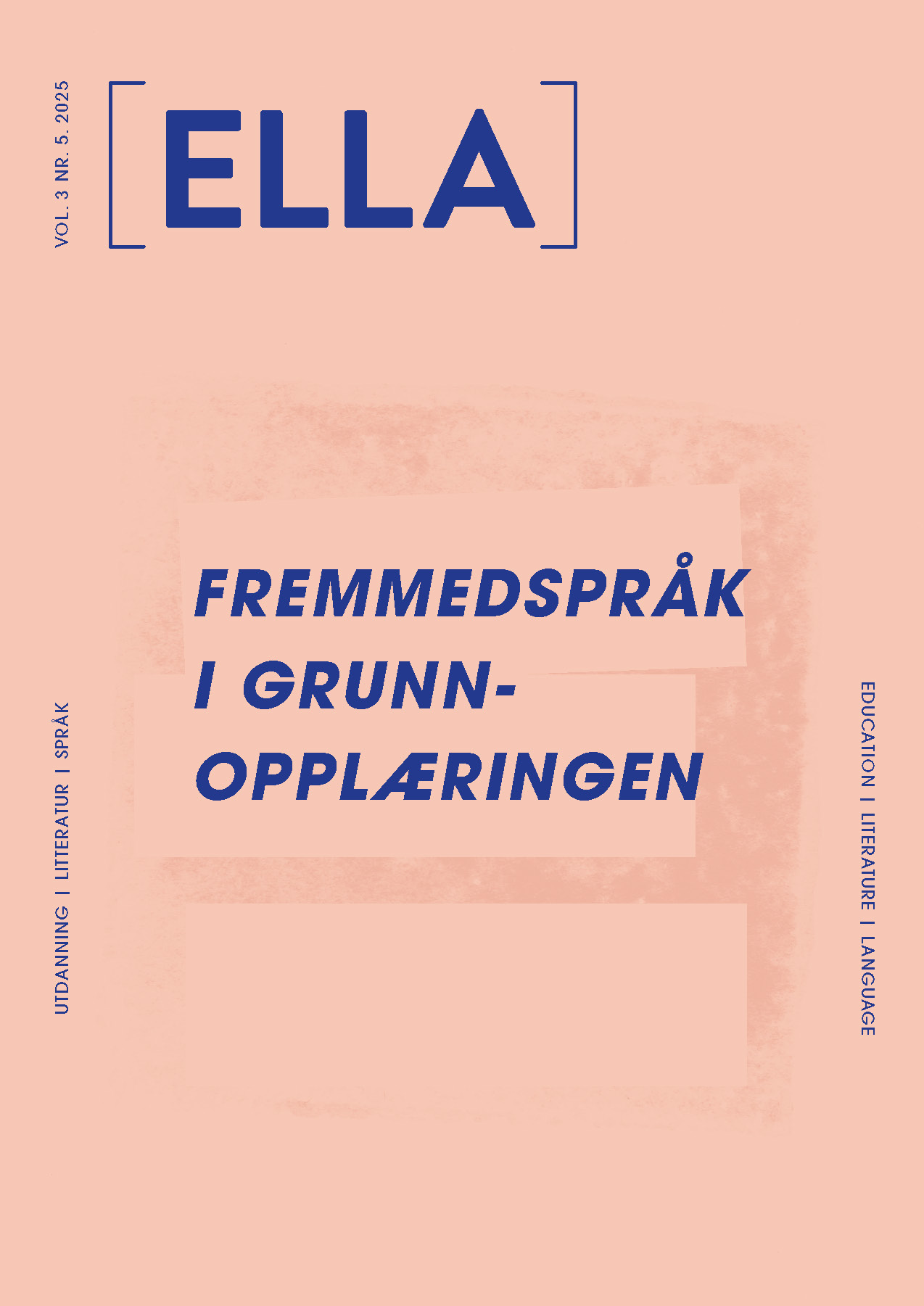Becoming a Foreign Language Teacher
Professional Identity Development among French, Spanish, and German Students in the Teacher Education for Primary and Secondary School
DOI:
https://doi.org/10.58215/ella.59Keywords:
GLU 5-10, professional identity, foreign languages, French, Spanish, German, teacher role, practical-communicative approachesAbstract
Few students in the Teacher Education for Primary and Lower Secondary School, Years 5–10 (GLU) choose foreign languages, and there is limited research on this group. This article examines the development of professional identity of students studying French, Spanish, and German. Drawing on a sociocultural and lifelong learning perspective, we explore the students’ process of forming an identity as a future foreign language teacher. The empirical data consists of qualitative interviews with 16 students between their second and fifth year of study. The interviews explore their emerging development, experiences, and assumptions about foreign language teaching – from their own school experiences, through their teacher education programme, and to their future teaching careers.
The findings show that both earlier experiences with inspiring schoolteachers and recent interactions in the teacher education programme serve as positive role models for the students’ professional identity development. However, we also find examples of negative experiences that students aim to avoid as future teachers. Previous research suggests that personal interest in languages and experiences from one's own schooling are key factors in subject choice and future teaching practice, a finding confirmed by our study. The students emphasise a sense of safety in the learning situation and varied, practical-communicative approaches as hallmarks of good teaching, which they strive to achieve. They demonstrate openness to exploring language together with pupils, adapting to pupils’ abilities, interests, and needs. The findings indicate that these students are prepared to further develop their subject knowledge and subject didactic competence, and to enter their roles as a foreign language teacher with a reflective and critical mindset, qualities that will benefit collaboration with colleagues in the future.
Downloads
Published
Issue
Section
License
Copyright (c) 2025 Berit Hope Bl¨å, Berit Grønn, Altijana Brkan-Masud, Anje Müller Gjesdal

This work is licensed under a Creative Commons Attribution 4.0 International License.

